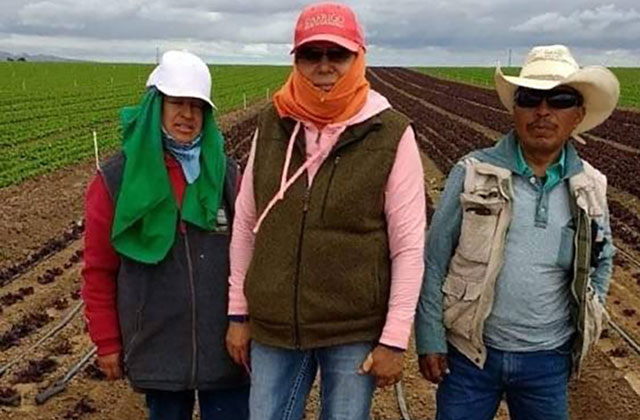With the hands of more than 254,000 migrant or seasonal farmworkers, the state of California provides the nation with over a third of its vegetables and two-thirds of its fruit and nuts, according to a 2018 California Department of Food and Culture report. Yet a March 31 article in The Guardian reveals how these workers, who are also deemed “essential” for keeping the country fed, are at increased COVID-19 risk.
“Nothing has changed at work,” Amadeo Sumano, who picks strawberries, told The Guardian in Spanish. “The distance principle, six feet between people, does not work in agriculture.” He also said that neither he nor his colleagues have received gloves.
Seeing how they were being put out to pasture in the midst of a pandemic, the United Farm Workers (UFW) wrote a letter to agricultural employers on March 17, asking for increased protections and benefits, such as more sick pay and encouraging workers to stay home when sick.
“What we noted immediately was that workers were not being provided protections or information. [Growers are] not even trying. And that’s gotten workers very scared,” said Armando Elenes, secretary treasurer of UFW, to the Guardian. “The last hands that touched that produce before the consumer puts it in their mouth is a farm worker’s hands, so we better care about what happens to these workers.”
Líderes Campesinas, an advocacy network made up of California women farmworkers, is reportedly working with health professionals in a program to train workers on how they can stay safe, which they also want to make mandatory across farms. For farmworkers, who are susceptible to illness or financial hardships as a result of lost hours or wages, COVID-19 is a multi-layered disaster.
“They’re getting paid the same, yet they’re exposing themselves to more dangers,” Líderes Campesinas spokesperson, Irene de Barraicua, told The Guardian. “There is no standard for safety orientation. Sometimes we’re hearing they just get a five-minute talk—stay six feet apart, don’t do this, don’t do that—but they’re working in big crowds. It feels like it’s not being taken seriously because the money is more important.”
